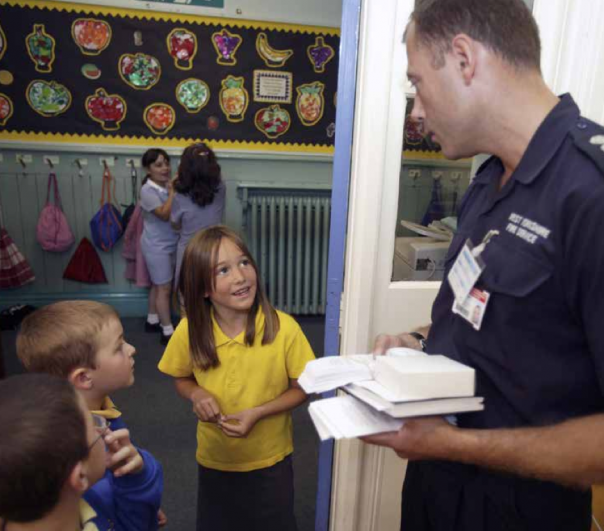Firefighters brought in to tackle childhood obesity crisis

Firefighters are now being used to help tackle the growing problem of childhood obesity by local authorities up and down the country.
A report published by the Local Government Authority found that firefighters are taking on an increasing number of roles, including fighting poverty, housing issues, drug and alcohol abuse and domestic violence, as the number of fires continues to fall.
The number of fires reported in the UK each year has fallen from 572,000 in 2003/4 to 213,000 in 2013/14, fires in homes also fell from 62,000 to 40,000.
Fire crews in the Norfolk and Suffolk areas are working in partnership with the local NHS teams to help overweight teenagers become more active. The Fire Fighting Fit and Healthy Programme offers young people an eight-week activity and nutrition courses with the firefighters acting as role models.
The scheme is run in partnership with East Coast Community Healthcare (ECCH), which runs the Childhood Healthy Weight Service for the two county councils.
Steph Edrich, manager of the scheme, said: “It is a difficult age to get health messages across so what we have tried to do is use the standing that firefighters have to encourage these teenagers to adopt healthier lifestyles.
“They bring something a little different to what we offer. They are role models and therefore are able to motivate youngsters in a way traditional health and local government services cannot.”
Whereas, the Merseyside Fire and Rescue Service has been encouraging young people to keep active and healthy through its Fire Fit programme for the past five years. Firefighters visit schools in the local area to conduct 60-90 minute sessions, which includes activities such as football and athletics.
Cllr Izzi Seccombe, chair of the LGA’s Community Wellbeing Board, said: "Health is everybody's business and the fire service has really shown how effective it can be while remaining fully committed to providing the highest standard of emergency incident cover.
"Firefighters are one of the most trusted professions in the eyes of the public, and this makes them uniquely placed to provide critical advice and support to the most vulnerable members of society. The work they are doing to team up with other local support means that life saving measures can be put in place at very short notice."
Cllr Jeremy Hilton, chair of the LGA’s Fire Services Management Committee, said: “Fire and rescue services have proven just how effective they can be by halving the instances of fire over the last decade through both their responses to emergencies and their extensive programme of prevention work.
"They are now exploring how they can use their expertise in further prevention work to improve the public's health by providing critical interventions, promoting health messages and referring to appropriate services.
"Over half of all fire related deaths and injuries in the home happen to people over 60 and we know that impairment and disability increase the risk of harm from fires and other hazards too. This work means that not only can we prevent fires and other emergencies, but action can be taken to help people who may not even realise that they need extra help."
The Local Government Association which represents all 49 fire and rescue authorities (FRAs) in England and Wales and more than 370 local councils, has produced a report called ‘Beyond Fighting Fires – The role of the fire and rescue service in improving the public's health'.
